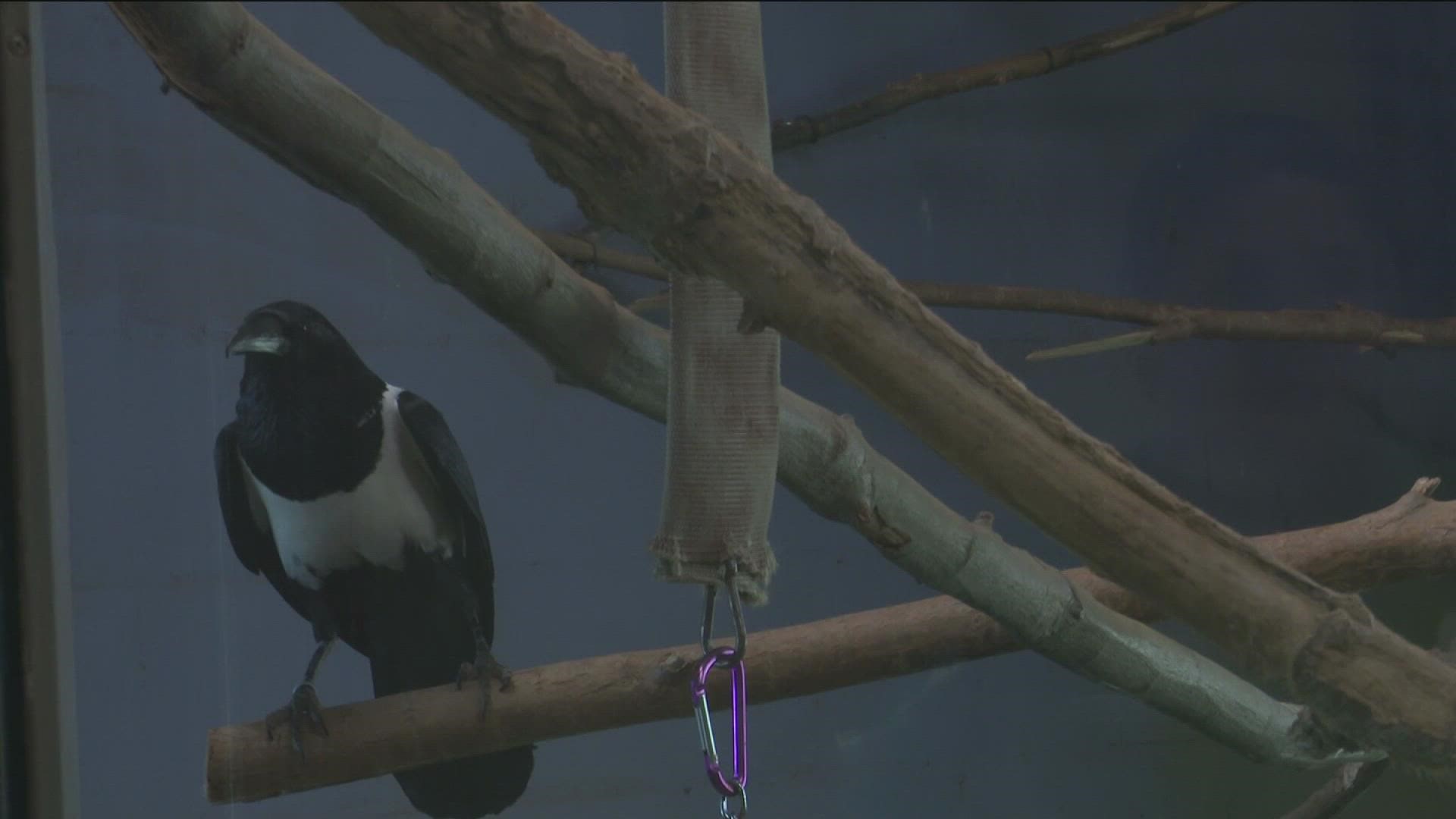BOISE, Idaho — As cases of Avian Influenza, also known as bird flu, are decreasing around the Treasure Valley and the rest of Idaho, local bird enclosures are continuing to take "every precaution possible" with their animals.
"We have been trying to keep a lot of our animals inside," said Melissa Cavaretta, the zoo veterinarian at Zoo Boise.
Since April, when Avian flu was first discovered in Idaho, Zoo Boise took steps to protect its three dozen birds from the virus. These safety measures included covering some outdoor bird exhibits and bringing some birds indoors to reduce their potential for exposure.
"It's definitely been trying to make sure that you're giving them the best care possible and protecting them from Avian influenza," Cavaretta said.
Doug Holloway, the director of Boise Parks and Recreation, said zoo staff will continue to monitor the situation around the state to make the next decisions for the birds.
Holloway said it is not just domestic birds being impacted by the flu, wild birds at Boise parks are too. He told KTVB it was only a few weeks ago that Parks and Rec staff were removing dozens of dead wild birds a day from local parks.
"We have a lot of waterfowl, which is primarily what's been affected by the bird flu. A lot of that waterfowl lives in our parks and a lot of our parks are along the Boise River," Holloway said.
Migratory waterfowl are known to carry and pass on Avian flu to other birds. The virus is what Holloway believes is the culprit behind the many wild bird deaths in local parks.
"I think it's come and gone in the past," Holloway said about past years' outbreak of Avian flu. "But I don't think it's been to the extent that we have seen [this year]."
However, as of last week, Holloway is happy to report the situation in Boise parks has changed drastically.
"It has tapered off. We're not seeing as many right now. In fact, we've been going days without seeing any at all," Holloway said.
According to the U.S. Department of Agriculture's database, cases of Avian flu have been on a decline since April and May. Those Spring months saw about 277 identified cases in commercial and backyard flock, while so far in July there have only been six cases identified. The last time a flock in Idaho had a detected and reported case of Avian flu was on May 24.
Idaho Fish and Game said they are seeing similar trends and getting fewer reports of dead birds infected with Avian flu around the state. However, Public Information Supervisor Roger Phillips said that just because what looks like the worst of it is over, does not mean we're in the clear completely. Fish and Game urges those with domestic birds to continue to be cautious.
"There’s also a possibility of more bird deaths and we ask people to report large die-offs of birds so we can continue tracking them if they occur," Phillips said.
That advice and caution are why Zoo Boise's bird's natural enclosure spaces will continue to remain to look and operate a little different for a bit longer.
"We have birds here that are potentially valuable for breeding purposes and could potentially be on an endangered species list," Cavaretta said. "We want to just make sure that we're taking every precaution possible."
Many of the birds at Zoo Boise are still accessible to guests, the animals are just inside a building nearby behind glass.
Cavaretta said as things continue to get dryer and hotter outside she is hopeful it will kill more of the virus so it's safe to put the birds back in their enclosures. She said things potentially could go back to normal in just a few months.
Watch more Local News:
See the latest news from around the Treasure Valley and the Gem State in our YouTube playlist:

